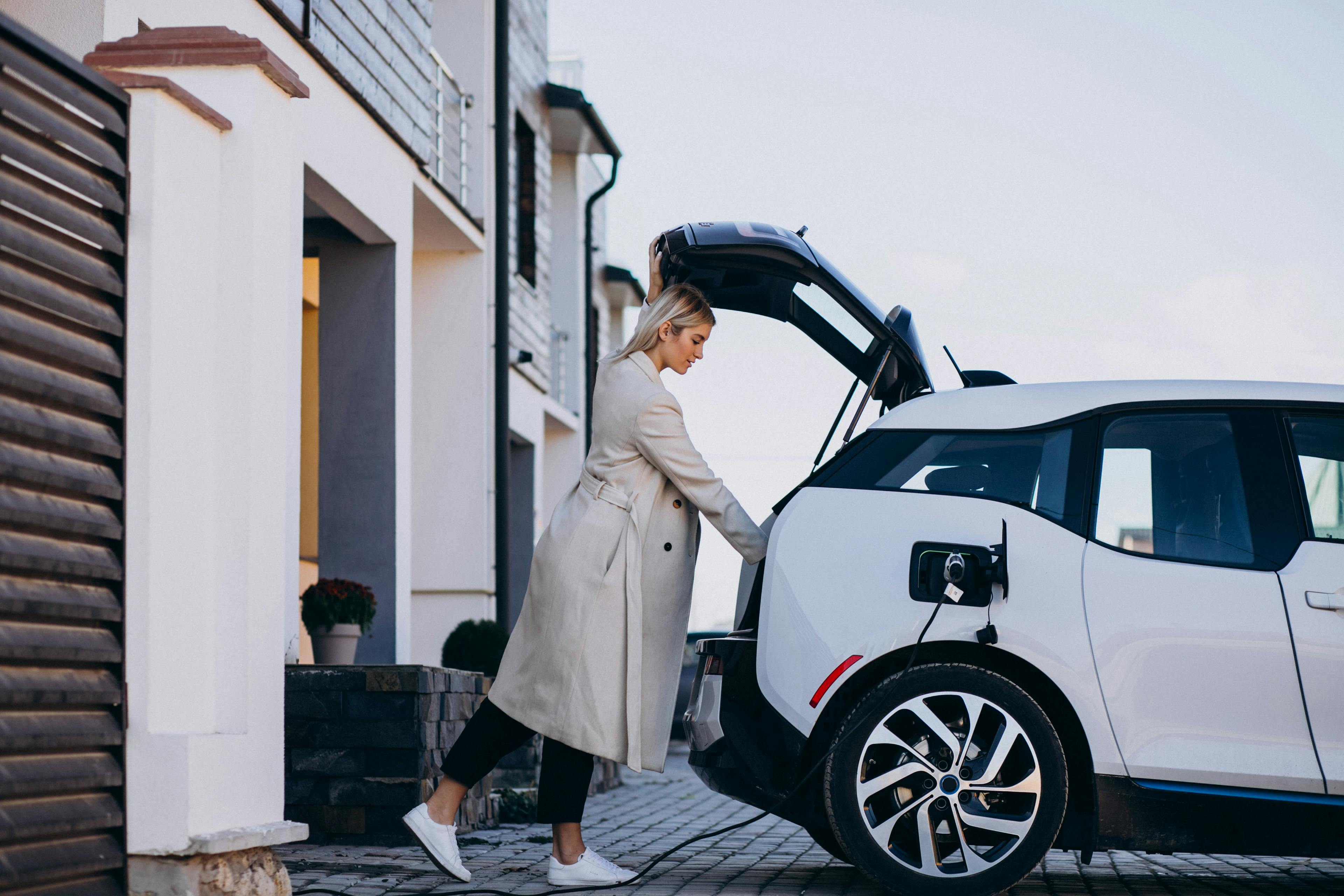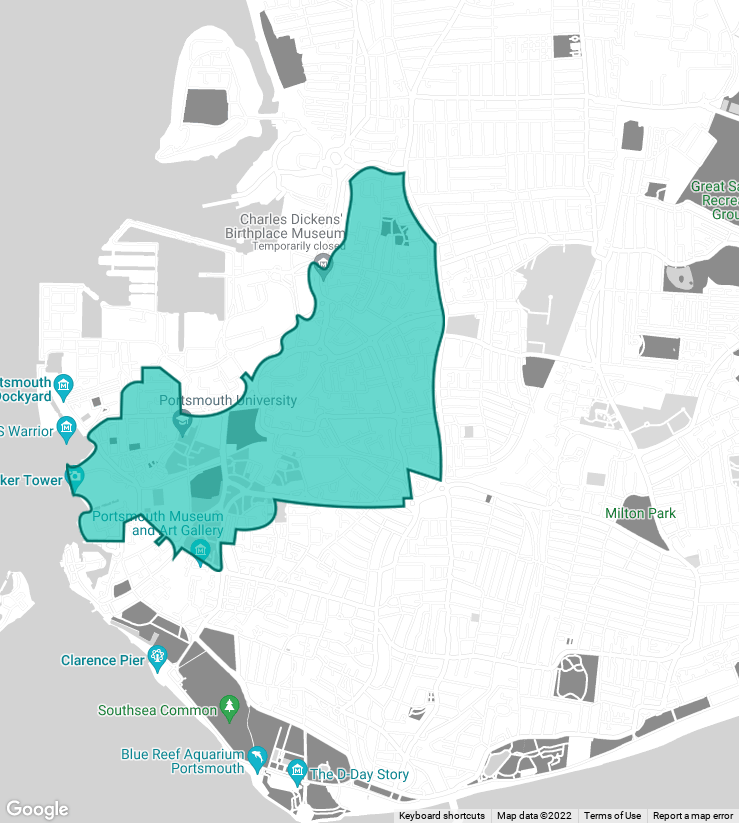
Portsmouth Clean Air Zone: Everything You Need to Know
Find out what the Portsmouth Clean Air Zone is, who it affects and what parts of the city it covers
If you live in Portsmouth, or regularly drive into the city, you need to be aware of the Portsmouth Clean Air Zone (CAZ) that came into effect on 29th November 2021. It affects drivers differently depending on what vehicle they drive.
Find out all you need to know about the Portsmouth Clean Air Zone in this article, .
What is the Portsmouth Clean Air Zone?
Vehicles contribute to over 50% of all air pollution in Portsmouth. This means that some areas have high levels of Nitrogen Dioxide (NO2) pollution which creates dirty air and leads to high numbers of excess urban deaths every year. In a 2017 report, the UK government identified Portsmouth as one of over 60 areas that needed to improve their air quality as soon as possible.
The Portsmouth CAZ is a quick way to make the city's air cleaner to breathe. It aims to encourage drivers of highly polluting vehicles to switch to cleaner, greener transport.
The council is also working on other ways to improve the air quality. These include improving public transport and electric car charging infrastructure. These will help the Portsmouth Clean Air Zone reduce levels of urban pollution.
Where is the Portsmouth Clean Air Zone?
The Portsmouth Clean Air Zone covers a large portion of the city centre, as you can see on the map below.

How Can You Tell if You are in the Zone?
If you haven’t double checked your route before you drive through Portsmouth, there is no need to panic. You will be able to tell if you are in the Clean Air Zone by the blue road signage that will be around the area.
They have a small green cloud in the middle of the sign, with a ‘B’ to signify the class of Clean Air Zone.
What Vehicles Will Be Charged to Drive in the Portsmouth Clean Air Zone (And Which are Exempt?)
The Portsmouth Clean Air Zone is a Class B CAZ. This means that the following vehicles will be charged if they don’t meet the relevant emissions standards (in brackets):
- Buses (Euro VI)
- Coaches (Euro VI)
- Taxis (Euro 4 if petrol, Euro 6 if diesel)
- Private Hire Vehicles (Euro 4 if petrol, Euro 6 if diesel)
HGVs (Heavy Goods Vehicles), vans, minibuses, cars, motorcycles and mopeds are not currently being charged to drive in the Clean Air Zone. Fully electric or hydrogen-powered vehicles are automatically exempt as they don't produce any exhaust emissions.
As well as the national exemptions, there are a few local exemptions. As per Portsmouth City Council guidance, the following vehicles are exempt for life:
- Emergency Service Vehicles
- Specialist Heavy Vehicles
The following vehicles are exempt for a limited time:
- Wheelchair Accessible Taxis and Private Hire Vehicles
- Non-commercial Vintage Buses
- Horse Transporters Classed as HGVs
- School and Community Transport
You must apply for an exemption and have it approved by the council before you can drive in the Clean Air Zone for free. Else, you must pay the relevant charge.
You can find out more about these exemptions, and how to register your vehicle for an exemption on the Portsmouth Cleaner Air website.
What are the Charges to Drive in the CAZ?
If your vehicle doesn’t meet the relevant emissions standards, you have to pay the following charge:
£10 per day for non-compliant taxis and private hire vehicles
£50 per day for non-compliant coaches, buses and HGVs
You must pay to drive through the Portsmouth Clean Air Zone either:
Up to 6 days before the day of your visit
The day of your visit
Up to 6 days after the day of your visit
You won’t be notified if you have driven through the Portsmouth Clean Air Zone. As a driver, it is your responsibility to know whether your vehicle meets the emissions standard and then to pay the right charge if necessary. If you fail to pay the charge within the 13 day allocated window, you will be subject to a £120 Penalty Charge Notice (PCN). You can reduce this to £60 if you pay it within 14 days.
You can pay the charge online. If you pay to drive through the CAZ in advance, but decide not to enter on that day, you can also apply for a refund.
What Time is the Portsmouth Clean Air Zone Enforced?
The CAZ is enforced 24 hours a day, 365 days a year. You are subject to a daily charge if your vehicle doesn't meet the right emissions standard but you only need to pay once per day. This allows you to drive in the zone without limit.
The charges apply from midnight to midnight, not 24 hours from when you enter the zone. For example, if you enter the CAZ at 11:59 pm one day, drive through it and then reenter at 12:30 am, you must pay for 2 days.
How Can I Check If I Will Be Charged to Drive in the Portsmouth Clean Air Zone?
The UK Government provides a free online checker to help you find out if you will be charged for driving through the Portsmouth Clean Air Zone. You should check your vehicle’s compliance regularly, even if you have driven through similar zones in other cities. The restrictions differ and you may be charged in Birmingham or Bath but not in Portsmouth.
Read More
Why Should I Buy an Electric Car?
Driving an electric car brings many benefits. Read this article to find out what they are and why you should start considering an EV in 2022.